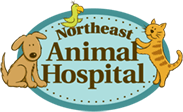Canine Influenza – Frequently Asked Questions

Q: What is canine influenza?
A: Canine influenza (CI), or dog flu, is a highly contagious respiratory infection of dogs that is caused by an influenza A virus. In the U.S., canine influenza has been caused by two influenza strains. The first strain reported in the United States, beginning in 2004, was an H3N8 influenza A virus. In 2015, an outbreak that started in Chicago was caused by a separate canine influenza virus, H3N2. Since March 2015, thousands of dogs have been confirmed positive for H3N2 canine influenza across the U.S.
Since both strains of Canine Influenza Virus, H3N2 and H3N8, cause illness and in severe cases can be fatal, our sister practices have adopted American Veterinary Medical Association recommendations and now recommend vaccination for both strains for at-risk dogs, and require vaccination for both strains in our canine boarding patients.
Q: What are the signs of canine influenza infection in dogs?
A: The signs of this illness in dogs are cough, runny nose, and fever, but not all dogs will show signs of illness. The severity of illness associated with canine flu in dogs can range from no signs to severe illness resulting in pneumonia and sometimes death.
Q: Do I need to be concerned about putting my dog in daycare or boarding it at a kennel?
A: If your dog is ill, you should immediately notify your veterinarian and the daycare or kennel. You will likely need to make other arrangements for your dog. You wouldn’t want your healthy dog exposed to a contagious dog, just as others wouldn’t want their healthy dogs exposed to your contagious dog.
Dog owners should be aware that any situation that brings dogs together increases the risk of the spread of communicable illnesses. Good infection-control practices can reduce that risk, so dog owners involved in shows, sports, or other activities with their dogs or who board their dogs at kennels should ask whether the respiratory disease has been a problem there and whether the facility has a plan for isolating dogs that develop respiratory disease and for notifying owners if their dogs have been exposed to dogs with respiratory disease.
As long as good infection-control practices are in place, pet owners should not be overly concerned about putting dogs in training facilities, dog parks, kennels, or other areas frequented by dogs.
Q: Will vaccination for both Canine Influenza Viruses (H3N8 and H3N2) be required for boarding?
A: After monitoring increases in outbreaks in numerous areas in the U.S., we decided to require vaccination for both strains for our canine boarding patients. For patients that have not received the combination vaccine in the past, an initial vaccine will be required, with a booster in 2 weeks to provide adequate immunity. Annual revaccination is required. In order to allow time for dogs to receive both doses of Canine Influenza H3N2 Vaccine, our pet boarding facilities will not require this vaccination until May 1, 2017.
Vaccination is recommended for other at-risk patients: those who visit dog shows, boarding or daycare facilities, dog parks, the dog beach, dog training classes, grooming salons, or social events with other dogs present. Please ask your veterinarian for guidance regarding canine influenza and additional non-core vaccinations that may be recommended for your pet based on lifestyle risk.
